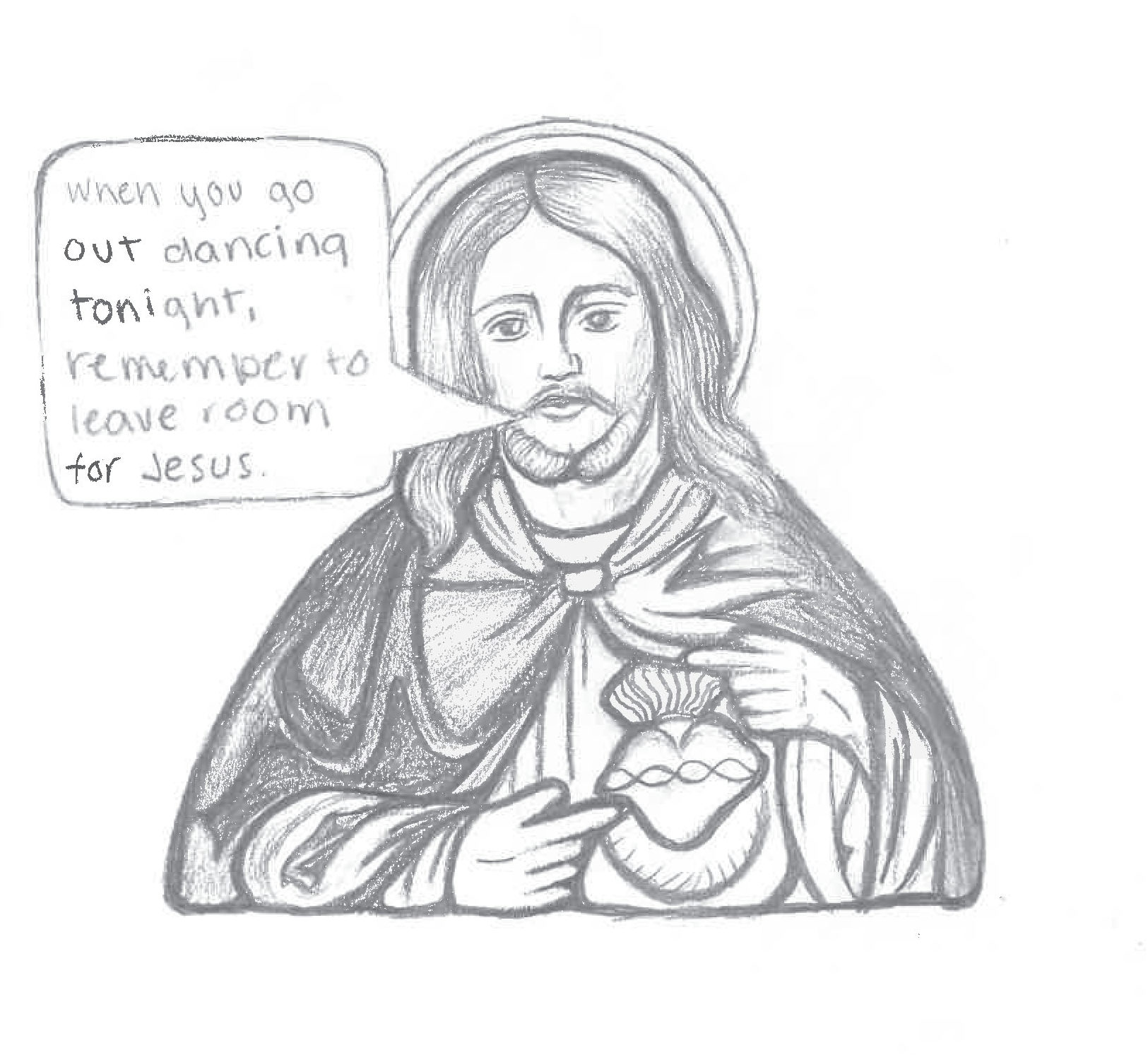
By Meg Friel
Executive Editor
I was sent to Catholic school from the age of kindergarten. My Irish Catholic father and Italian Catholic mother had already baptized my sister and me, and figured that the slap of a nun’s ruler or soap in the mouth that they experienced as kids in Catholic school would only traumatize us enough to instill morals that children in the public schools weren’t so lucky to receive.
Most of the morals I was taught in school came from the 0-60 method of using hell as a scapegoat for all means of discipline. While we memorized the golden rule and recited our 10 Hail Marys in cult-like fashion, we harbored an overwhelming sense of dread we would commit a sin. I would start to feel the back of my neck grow hot after taking a paper clip off of my teacher’s desk without asking, silently praying that somehow God would forgive this seventh commandment slip-up.
Small instances like this started to creep up on me until eventually I found it difficult to sleep. I dwelled over what I could possibly be sent to hell for, pausing for a second to hope that Jesus would consider “crap” as the gray category of curse words. This came to a peak in the sixth grade when the principal locked us in a room, surrounded by pictures of Jesus crying, Jesus bleeding, Jesus nailed to the cross and what I swore was a thought bubble that said, “Megan, why did you do this to me?”
There, the principal lectured us on the agony we put Jesus through because Zach couldn’t resist throwing a rock at the stop sign on the walk to gym class. From then on, our every mistake would be documented and filed away until the weekly meeting.
My parents switched me to public school, morals be damned.
Things lightened up and eventually, in the midst of my teenage rebellion, I made the executive decision to no longer believe in hell. Nevertheless, I continued to carry the baggage that took shape in the form of an angel and devil on my shoulders. This turned into a mild case of anxiety that has followed me since my childhood. I think the need to overcompensate for Adam and Eve’s original sin left me an overachieving yes woman, still worried over every mistake I’d make. Today, it’s still difficult for me to brush off the small things my friends seemed to have no trouble forgetting, like putting a “20% off” sticker on a pair of shoes not on sale. Cut to me crying in bed, praying for forgiveness. My Catholic guilt is a relentless companion that, although tamed, still always resurrects.
I’m not writing this op-ed in hopes of taking down the Catholic church. I believe religion is a sacred thing for those who abide by it, and I won’t say that my relationship with God is abolished. I’m grateful for my experience with the Edmundites on campus, who’ve been nothing but welcoming to me, and given me a sense of community.
I question, however, my inability to separate church and state of mind. I see this as a common trend in the world of former practicing Catholics, as my aunts, uncles, and parents relived their days in Catholic schools, uncomfortably laughing while they make jokes of hearing the approaching nun’s rosary beads in their nightmares despite not having gone to church in years.
Although I’m not sure I’ll ever fully rid myself of Catholic guilt, or even that I want to, as sometimes I secretly think that maybe it is the cause of all my (sometimes tiresome) morals, I do know this: There is no way in hell I’m sending my kids to a Catholic elementary school.

